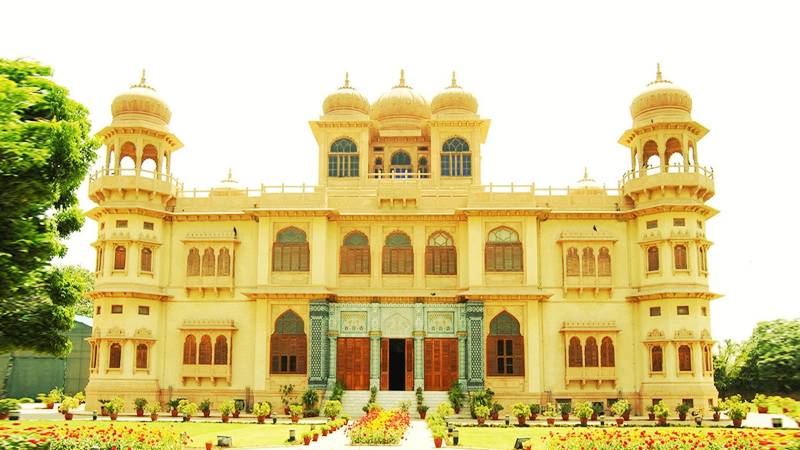
The Sindh High Court (SHC) on Thursday rejected the petitions of old Clifton residents and the Mohatta Palace Gallery Trust against the court verdict to convert the estate of Mohtarma Fatima Jinnah, Qasr-e-Fatima (commonly known as the Mohatta Palace), into a girls’ medical and dental college.
The residents and the trust had filed applications to become interveners in the lawsuit seeking administration of the estate left by the plaintiffs’ predecessors, Quaid-e-Azam Muhammad Ali Jinnah, Mohtarma Fatima Jinnah, and Mohtarma Shireen Jinnah.
The residents' lawyer said that if the land is turned into a college, his clients' rights and privacy will be violated. He claimed that since his clients will also experience traffic congestion, they should be included as a necessary and appropriate party in the current proceedings.
The trust’s counsel said Qasr-e-Fatima is being looked after by the applicant, which is a trust constituted by the provincial government, so it is a proper and necessary party to be arrayed in the proceedings.
According to a single SHC bench led by Justice Zulfiqar Ahmed Khan, it is a well-established principle that only those parties are required and suitable parties to the proceedings whose interests are challenged in the claim, and that without their attendance the issue cannot be adjudicated on the merits.
According to the court, an essential party is one who should have been included but whose absence prevents the making of an effective decision. The court further stated that, at the expense of repetition, Order I, Rule 10, CPC's purpose is to minimize duplication of procedures and litigation and to make sure that all appropriate parties are present when the case is heard in order for it to be decided properly.
The bench stated that the court would only allow a person to be impleaded in proceedings if it determined that the person who asked to join the case was an essential party.
The court ruled that the petitioners are neither the heirs of the decedent who held the relevant property nor related to him or her in any way. The petitions of the interveners were rejected by Justice Khan as being without merit.

